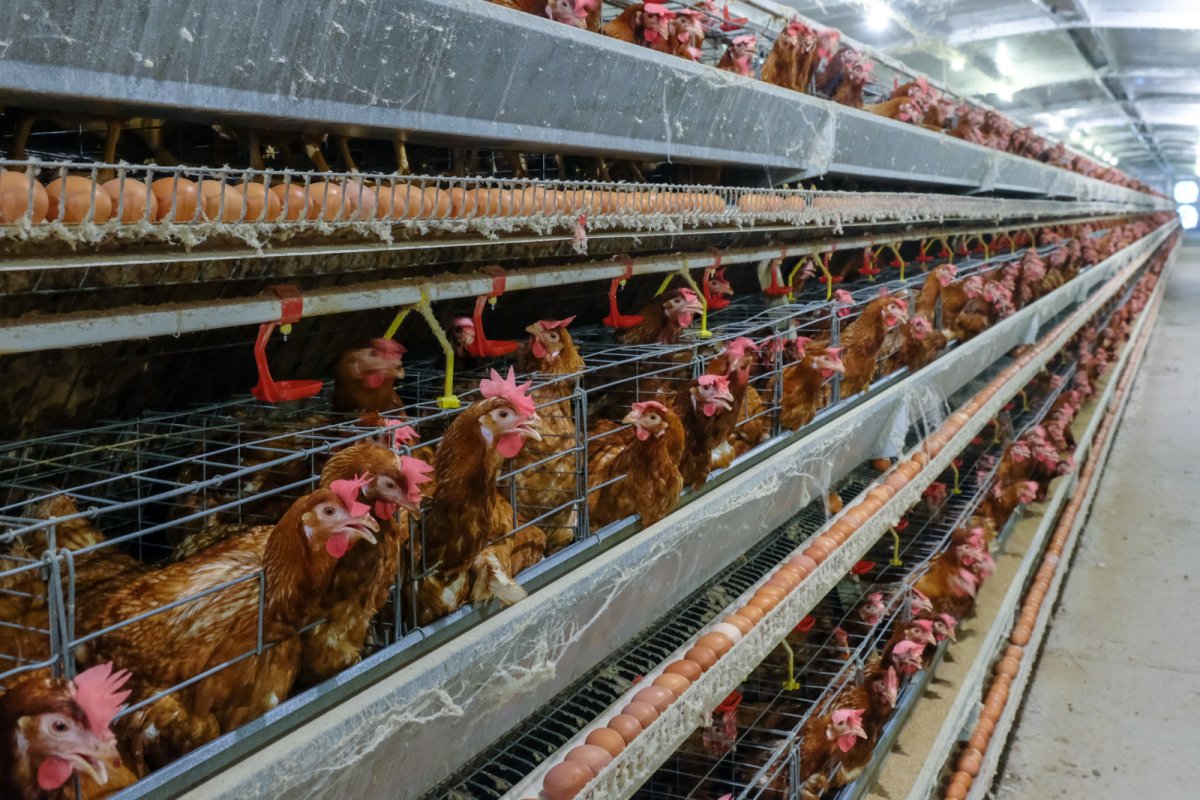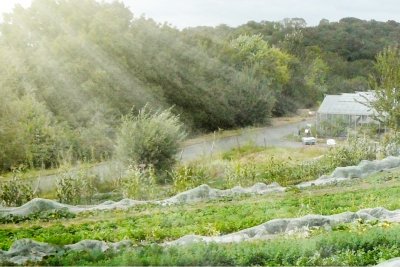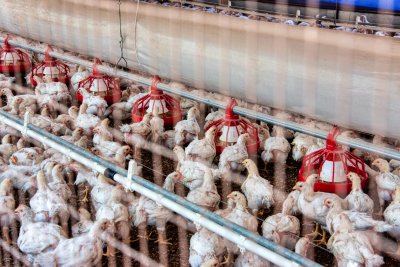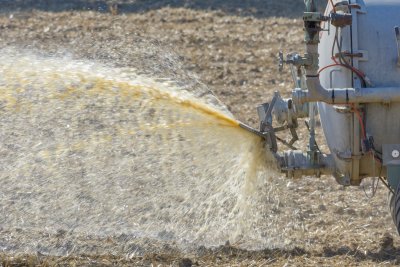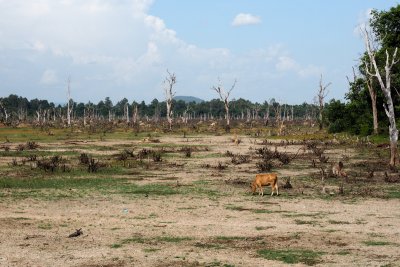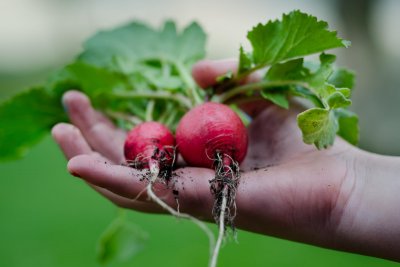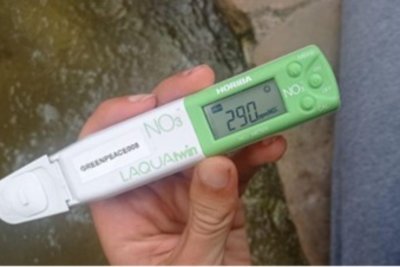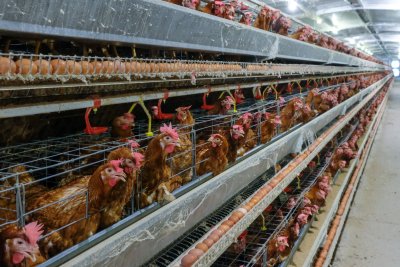 Layer chickens in multilevel conveyor production line of chicken eggs. Copyright: Mai.Chayakorn | shutterstock
Layer chickens in multilevel conveyor production line of chicken eggs. Copyright: Mai.Chayakorn | shutterstock
In April 2023, the UK Government announced a ‘Plan for Water’, which promised to consult on a proposal to allow the Environment Agency to hand out unlimited fines to water polluters, and to include a wider range of offences in Variable Monetary Penalties (VMPs) legislation. The changes will apply to England only.
Following the public consultation in spring 2023, the new powers for the Environment Agency include:
- Taking action against firms that breach environmental permits. Intensive livestock units over a threshold size are required to have an environmental permit. The new rules could see them sanctioned for activities such as irresponsible management of manure and slurry waste.
- Illegal discharges to water where there is no permit. Most farms don’t have an environmental permit for agricultural installations because they don’t meet the threshold number of livestock, but they may receive waste from a large unit nearby and store and spread it on their land. It is thought that these operations could be sanctioned through the new penalties.
- Illegal offences by waste installations. Anaerobic digesters are considered waste management facilities for the purpose of permitting. They are required to take appropriate measures to ensure that waste is disposed of in a manner which minimises its impact on the environment’. Breaches of their permit requirements could be included in new powers.
In England, VMPs are discretionary penalties that can be imposed by the Environment Agency for breaches of legislation as set out in the Environmental Civil Sanctions (England) Order 2010 Schedule 5. The changes announced today are thought to mean that VMPs will become a civil sanction in the Environmental Permitting (England and Wales) Regulations 2016, which would mean they apply to a wider set of offences.
It is anticipated that a new Enforcement and Sanctions Policy will be released to provide more detail on how VMPs will operate, and how penalty amounts calculated. Funds raised from penalties are due to be reinvested in a new Water Restoration Fund, which will support projects that work to improve rivers, lakes and streams at a local level.
Ruth Westcott, climate and nature emergency coordinator at Sustain said
“This a great step, it will give the Environment Agency more power to tackle the pollution crisis that intensive, industrialised livestock operations are causing. We have been calling for government to tackle pollution from intensive livestock operations, so this is great to see. Unlimited fines are a great stick, but we also need carrots, ie we need to ensure that more livestock units are covered by a permit and by planning permission, so they are better regulated and have clear rules to follow day to day to prevent pollution in the first place.
Also, these new powers won’t stop the large agribusinesses that own the intensive livestock operations and are causing waste in the first place, because they often offload their waste onto local farmers. We need to make sure that the people producing this unsustainable amount of waste in the first place don’t get away with it.”
Sustain is supporting local councils in the UK to put in place the planning policies needed to halt the spread of polluting factory farming and ensure biodiversity and wildlife decline is reversed. Find out more about our Planning for the Planet campaign in our blog. Councils can join Planning for the Planet now.
Food for the Planet: Food for the Planet is helping local authorities, businesses and organisations take simple actions to tackle the climate and nature emergency through food.
Sustain
The Green House
244-254 Cambridge Heath Road
London E2 9DA
020 3559 6777
sustain@sustainweb.org
Sustain advocates food and agriculture policies and practices that enhance the health and welfare of people and animals, improve the working and living environment, promote equity and enrich society and culture.
© Sustain 2024
Registered charity (no. 1018643)
Data privacy & cookies
Icons by Icons8
